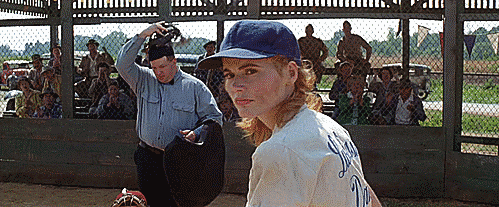…
you learn to catch it. Sounds pretty simple right? This coming from the girl
who’s been nailed in the leg with a line drive and ended up in the hospital.
Don’t worry too much this was years ago and it was just a contusion (a big
scary word for a large bruise). But my leg turned pretty shades of blue,
purple, red, yellow, and green and swelled up to twice its normal size. And I
limped around for a solid week because my muscle would painfully tighten every
time I put weight on it. And we won’t about how hard it was to put pants on.
So
what does all this whining and pain have to do with writing—aside from the fact
that we writers would prefer not to put on pants? About two months ago, I got
thrown the mother of all curve balls in my writing career.
Things
were going great. I’d landed an amazing agent, we were on our second round of
edits, my manuscript was looking better than ever, and my writing was being
pushed beyond what I thought possible. My agent sent me some thoughts, they
seemed pretty straight forward and at the end of the email mentioned addressing
these few items then some line edits and then we could go on sub. That magical “S”
word. I was there. This was going to happen.
And
then a week later I opened an email from my agent and my world came crumbling
down. She was writing to inform me she’d taken another job in publishing and
unfortunately couldn’t take her clients with her. My heart sank. What did this
mean? What would it do to my career? Of course I was happy for my agent or
former agent, but I couldn’t help but think how this would affect me.
After
6 months of seeing my path forward and working with an amazing agent who pushed
me in ways I never imagined, I was suddenly Alice in Wonderland—lost in the
dark, scary woods with a path that had suddenly been erased out from underneath
my feet.
I
was nowhere.
I’m
sure some of you reading this are saying now hold on a minute… But at the time
I was such a blubbering mess of tears and confusion that I was blind to any
possibilities.
So I
ask again, what do you do when you’re thrown a MASSIVE curve ball in your
writing career?
Step 1: Get the heck out of the way.
Seriously,
if you’re not equip to catch the ball then get out of the way. Sit down, take
some time and deal with your emotions. Be sad, be angry, feel sorry for
yourself. Do whatever you need to do even if that means putting writing,
editing, etc. on the back burner. Take care of number 1 first.
Step 2: Call in the coach, team, and
cheerleaders.
You didn’t
get to this point in your writing career without a support system, and you aren’t
without one now. Use them. Lean on them. Vent to them. And let them lift you up
and help you find your new path. There’s one there, you’re probably blind to
it, but they will help you find it.
Step 3: Step up to the plate.
When
you’re ready, get back in the game. Start editing, write something new,
brainstorm a new idea, outline etc. Find something that feels right and jump
in. Sure the water is cold, the wind is blowing, and you might still be limping
around, but you have to get up off the couch and rejoin the game.
Step 4: Take a swing.
Once
you’ve got your bearings back, take that next step. Dive back into the query
trenches, submit your work for publishing, take the plunge. Keep trying and don’t
stop. Find that project your passionate about, put it out in the world and see
what happens. Swing the bat until it connects.
Step 5: Run the bases.
Keep
pushing forward. You might not make it to home plate yet, but you can’t get
there if you don’t get on base. Perseverance. It’s what’s gotten you to this
point and it will continue to carry you forward.
Revisit
all steps as needed.
So
where does this leave me in all of this? I’m somewhere between steps 4 and 5. It
took some time to see that I was actually in a fairly fortunate position. I
have an almost sub ready manuscript that’s never been seen by editors. I’m
ready to go. Once I took some time to come to terms with my situation, I
started my edits. And I generated a list of agents. I found new agents that
hadn’t yet seen my manuscript and agents that expressed interest in the past
that might want to see a heavily revised version.
With
my newly revised, sub ready manuscript, I dove head first into the query
trenches. Was it scary… OMG yes! I sat there for 30 minutes staring at the
email I’d drafted before I could even hit the send button. I think this was in
part because while the bruises were no longer visible, I still very much felt
them. But once I did get up the courage to send that first query, each one
after that became a little easier.
And
when the rejections started to roll in, my heart sank a little. My pride hurt. Maybe
this was a fluke. Maybe there was only one agent who liked my work. Imposter
syndrome is real folks! But then came a request and some interest. So maybe I
just need some more time. It took a solid almost ten years of writing and
querying off and on to find my first agent, a second wouldn’t just happen
overnight. Until then I wait, I write, and I keep moving forward.
Oh
and I bought a glove… so I can actually catch that curve ball ;)








